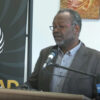We at Nova Scotia Parents for Public Education were disappointed in premier-designate Tim Houston’s announcement of the Back-to-School plan, and Chief Medical Officer of Health Dr. Robert Strang’s details.
We agree that the best place for our students is in the classroom with our peers and teachers. However, with our elementary students unable to be vaccinated, and many previous concerns unaddressed, we believe this plan does not go far enough. We were hoping to see the continuation of Nova Scotia’s cautious approach to COVID, but instead feel like yesterday’s briefing was a “COVID is over” announcement.
With the rise in the Delta variant, and a fourth wave started in other parts of Canada, we are concerned that the decision to end mandatory COVID protocols as students are back in classrooms is short-sighted and unnecessarily risky. Mr. Houston and Dr. Strang continue to peddle the lie that schools are safe if communities are safe, when data clearly indicates schools as the second-highest source of transmission in the province during the third wave.
Delta is demonstrably more risky to young children, and their lack of eligibility for vaccination make the layer approach to mitigation even more important. To date, Nova Scotians were told that masks were an important part of that layer approach, including physical distancing, staying home when sick, and good hygiene:
- Last year demonstrated that we cannot rely on goodwill to keep students home when sick, especially in the absence of government-mandated sick days for workers who would need time to care for their child.
- Ventilation systems in Nova Scotia schools are still non-existant or in disrepair, and the information from last year’s audit gives no details on whether they function at levels recommended for COVID mitigation — where they exist at all.
- Nova Scotia classrooms continue to be overcrowded. We appreciate the new government’s commitment to the inclusion report, but our students and school staff need space now, for optimal safety.
- Handwashing was not handwashing. In some cases, schools went to lengths to provide breaks where students could use soap and running water to wash their hands. In more cases, alcohol-based hand sanitizer was used as a substitute. When improperly used, hand sanitizer is known to contribute to the proliferation of superbugs, where bacteria become resistant to usual treatments. Handwashing does not carry this risk, and is proven more consistently effective.
- Teachers and other school staff are supposed to be our front line protection for unvaccinated students, yet there is no mandate or tracking to ensure they are safe to be in schools. We appreciate that it is likely that the vast majority of teachers feel it is their duty to be fully vaccinated, given the lack of other safety measures in schools. We believe in personal choice regarding the decision to be vaccinated. However we would like to see mandatory testing for school staff who aren’t vaccinated.
- Masks have been promoted by governing health bodies around the world as one of the most effective ways to prevent the transmission of COVID and other droplet- or aerosol-spread viruses. A strong mask mandate has helped keep our transmission rates at an enviably low level, even where there have been known exposures in public spaces, such as retail settings. We appreciate that many in the public are eager to see an end to masking, but in jurisdictions that prematurely ended these mandates, COVID numbers climbed immediately. We have only to look to our neighbours in New Brunswick as an example. Especially in Pre-Primary to 6 settings, it would be strong public policy to continue the mask mandate to protect those youngest citizens from the immediate and long-term effects of a COVID infection.
With two weeks remaining until school resumes for students, and 22 days until the projected move to Phase 5, there is time to revise the Back-to-School plans, to increase the success and safety of a full year of in-person learning in our schools.



